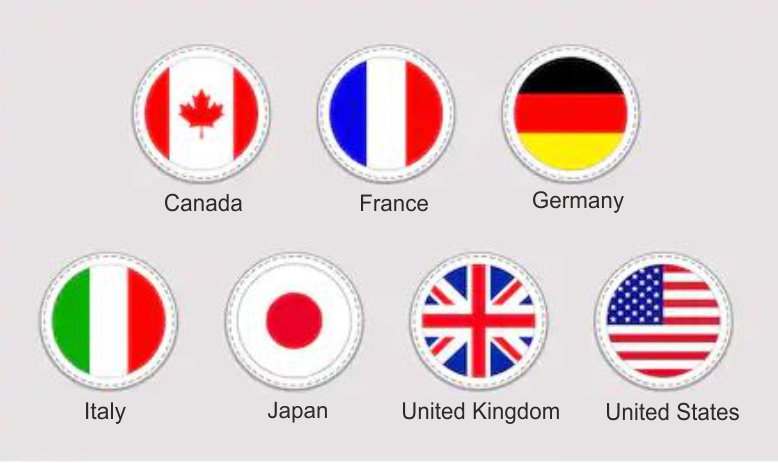G-7 Summit | 22 May 2020
Why in News
Recently, the President of the USA made an announcement to host the 46th G7 summit in-person instead of remotely by videoconference.
- Originally, the annual G7 summit was scheduled to be held on June 10 to June 12, 2020 in Camp David, United States.
Group of Seven (G-7)
- Description:
- G-7 is a bloc of industrialized democracies i.e. France, Germany, Italy, the United Kingdom, Japan, the United States, and Canada.
- The world's biggest population and second-biggest economy, China has relatively low levels of wealth per head of population. Thus it is not considered as an advanced economy like other G7 members. Hence China is not a member of G7.
- It is an intergovernmental organisation that was formed in 1975.
- The bloc meets annually to discuss issues of common interest like global economic governance, international security and energy policy.
- The G7 was known as the ‘G8’ for several years after the original seven were joined by Russia in 1997.
- The Group returned to being called G7 after Russia was expelled as a member in 2014 following the latter’s annexation of the Crimea region of Ukraine..
- G-7 is a bloc of industrialized democracies i.e. France, Germany, Italy, the United Kingdom, Japan, the United States, and Canada.
- Summit Participation:
- Summits are held annually and hosted on a rotation basis by the group's members.
- The host country not only holds the G7 presidency but also sets the agenda for the year.
- The groundwork for the Summit, including matters to be discussed and follow-up meetings, is done by the sherpas, who are generally personal representatives or members of diplomatic staff such as ambassadors.
- The leaders of important international organizations like European Union, IMF, World Bank and the United Nations are also invited.
- Challenges and Concerns:
- Internally the G7 has a number of disagreements, e.g. clash of the USA with other members over taxes on imports and action on climate change.
- The organisation has also been criticised for not reflecting the current state of global politics or economics.
- There are no G7 members from Africa, Latin America or the southern hemisphere.
- It is also facing a challenge from fast-growing emerging economies, like India and Brazil are not members of the G7.
India and G-7
- The participation of India at the 45th summit in Biarritz, France, is a reflection of deepening strategic partnership and recognition of India as a major economic power.
- While India has found the European Union a difficult jurisdiction to navigate diplomatically, a better relationship between India and European Union is emerging as a policy priority under G-7.
- India’s ability to safeguard its core sovereign concerns such as trade, Kashmir issue and India’s relations with Russia and Iran can be discussed with G7 members.
- India raised issues on climate change and at meetings which signaled India’s growing willingness to lead on issues that are points of contention for countries like China and the USA.
Way Forward
- G-7 must focus on the key international issues like terrorism, climate change, trade and internal conflicts between the countries.
- As a platform it must reflect the solutions for the pressing issues and global concerns like elimination of poverty and diseases.
- It should support the economies at the global level and help to establish the equal levels for each country.

